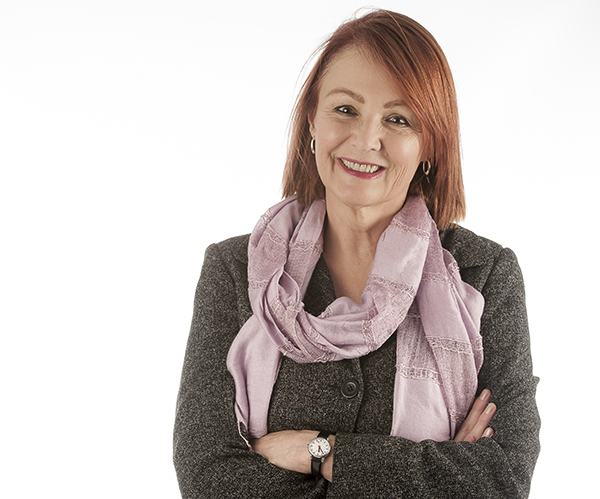Latest News Archive
Please select Category, Year, and then Month to display items
![]()
The National Research Foundation (NRF) ratings are considered the benchmark for research excellence. This year the University of the Free State (UFS) has 17 newly NRF-rated researchers. This brings the total number of NRF-rated researchers at UFS to 160.
NRF ratings are allocated based on a researcher’s recent research outputs and impact as perceived by national and international peer reviewers. The rating system encourages researchers to publish high-quality research papers in journals of high impact and to publish books through reputed academic publishers. The NRF rating system is a valuable tool for benchmarking the quality of our researchers against the best in the world.
Research at the heart of the UFS
Prof Francis Petersen, Rector and Vice-Chancellor, has indicated that the UFS provides significant support to researchers to apply for new NRF ratings or to re-apply for rating. These initiatives include the mock NRF rating panels managed by the Prestige Scholars Programme (PSP), evaluation of individual research outputs and recommendations on timely applying for rating, and improvements on rating applications by a panel consisting of internal and external members. These initiatives are bearing fruit by increasing the number of rated researchers who will transform the research profile and increase the diversity of UFS researchers.
Cultivating the best researchers.
According to Eleanor van der Westhuizen, from Research Development: “The rating of individuals is based primarily on the quality and impact of their research outputs over the past eight years, taking into consideration the evaluation made by local and international peers. It identifies researchers who count among the leaders in their fields of expertise and gives recognition to those who have a sustained production of high-quality research outputs. Several South African universities use the outcomes of the NRF evaluation and rating process to position themselves as research-intensive institutions, while others such as the UFS provide incentives for their staff members to acquire and maintain a rating.”
Cream of the crop
The UFS has also upped the ante with regard to its total number of NRF-rated researchers during the latest rating and evaluation, with an increase from 149 to 160 rated researchers in 2018.
Prof Heidi Hudson, Dean of Humanities, received an NRF B-rating, which brings the total of B-rated researchers to six. Other B-rated researchers incude Prof Johann Meyer (Mathematics), Prof Fanie Snyman and Prof Francois Tolmie (Theology), Prof Felicity Burt (Medical Microbiology) and Prof Andre Roodt (Chemistry). A total number of 10 new C-ratings and six new Y-ratings were achieved during the 2018 evaluation process.
“NRF-rating is indicative of the university’s drive to enhance its research profile nationally and internationally. Congratulations to all the scientists and scholars who received a rating in 2017. I am thankful to our academics for their commitment to the rating process,” said Prof Corli Witthuhn, Vice-Rector: Research at the UFS.
Research chair into Higher Education gets boost for five more years
2017-11-21

Prof Melanie Walker, Director of the Centre for Research on
Higher Education and Development (CRHED).
Photo: Supplied
The research Chair in Higher Education and Human Development within the Centre for Research on Higher Education and Development (CRHED) at the University of the Free State has secured funding for another five years. It follows a favourable evaluation by the South African Research Chairs Initiative (SARChI) of the research project at the UFS.
The Director of the Centre, Prof Melanie Walker, says she is delighted by the recognition of the Chair's hard work and significant productivity. “This new round of funding secures the centre and its activities for the next five years.”
Under the auspices of the Chair, research is conducted on higher education, inequalities and social justice, and how or if universities foster the human capabilities and aspirations of students. In essence, the research studies whether higher education makes a difference to the lives of students, their families and communities. Prof Walker says the Chair's projects look at issues of access, participation and transitions into work, as well as gender, race and social class. The research uses quantitative and qualitative methods and includes a strand of participatory research projects with students.
Prof Walker says through the Chair research project, and the Centre, researchers have developed extensive international links and produced international quality research and publications. “We foster high-quality PhD graduates as a new generation of social science academics.” The Chair has in the first five years produced 10 PhDs and four master’s students.
The project in the next five years will continue with its focus on higher education and human development research. Prof Walker says all the research efforts seek to contribute to more justice in society and universities and to contribute to debates, policy and practices in higher education and a scholarly knowledge base.
The Research Chairs Initiative aims to improve the research capacity at public universities to produce high-quality postgraduate students, research and innovative outputs. The assessors looked at features such as the number of students the research entity had trained and how many publications the research team had produced.